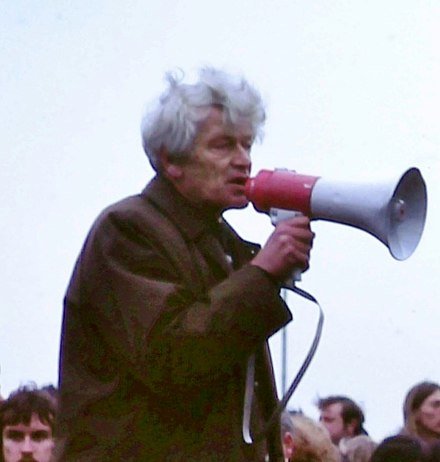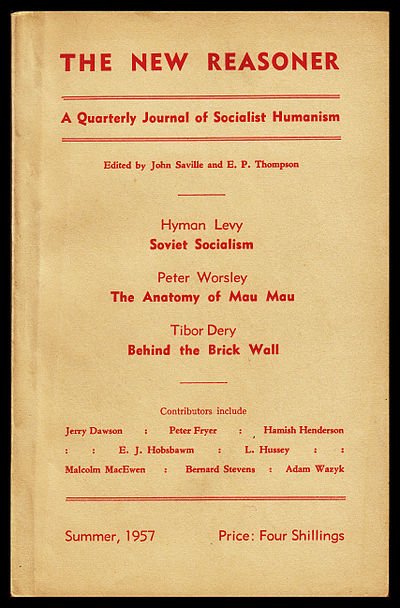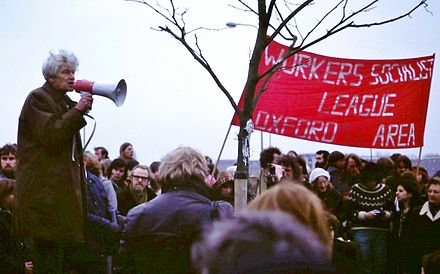British Heritage
Remember, Cherish, Learn.
beta
E. P. Thompson
Contribution of E. P. Thompson to British Heritage.
Edward Palmer Thompson, known as E. P. Thompson, was an English historian, writer, socialist, and peace campaigner whose work has had a lasting impact on British heritage. He is best known for his seminal historical work, "The Making of the English Working Class," published in 1963. Thompson's contributions to British heritage can be understood through his revolutionary approach to labor history and social history, as well as his commitment to Marxist ideals and his significant role in the intellectual and political spheres of the 20th century.
E. P. Thompson was born in Oxford on February 3, 1924, to Methodist missionary parents. His father, Edward John Thompson, was a poet and admirer of the Nobel Prize-winning poet Tagore. Thompson's early exposure to literature and progressive ideals from his family environment had a profound influence on his intellectual development.
During his time at Cambridge University, Thompson joined the Communist Party of Great Britain and later co-founded the Communist Party Historians Group in 1946. It was through his engagement with the Communist Party that he developed a deep commitment to social justice and working-class empowerment. However, Thompson's intellectual journey led him to challenge the Soviet regime after the revelations of Stalin's crimes, which eventually led to his departure from the party in 1956. Nevertheless, he remained a historian in the Marxist tradition, seeking a revitalization of communist ideals free from Stalinism.
Thompson's early major work, the biography "William Morris: From Romantic to Revolutionary" (1955), highlighted the political significance of William Morris, a leading figure in the British Arts and Crafts Movement. The biography underscored the domestic roots of Marxism in Britain, challenging critics who had previously emphasized Morris's art over his political activism.
However, it was with "The Making of the English Working Class" (1963) that Thompson achieved global recognition and forever transformed the landscape of British historiography. In this monumental work, Thompson delved into the lives of ordinary working-class people during the late 18th and early 19th centuries, exploring their beliefs, aspirations, and struggles. By unearthing overlooked documentary evidence, Thompson brought to light the history of the first working-class political left in the world.
The book's groundbreaking approach, rooted in historical Marxism and the concept of class as a relationship, paved the way for a new generation of labor historians. Thompson challenged the conventional notion of class as a static structure and instead emphasized the dynamic nature of class consciousness and identity. This redefined understanding of class allowed for a more nuanced examination of historical working-class experiences and their significance in shaping British society.
E. P. Thompson's legacy is multifaceted and far-reaching. "The Making of the English Working Class" remains an essential text in university curricula more than 50 years after its publication. It has inspired countless historians, scholars, and activists worldwide to study and engage with the history of ordinary people and their contributions to social change.
Thompson's intellectual and political engagements extended beyond academia. He was an influential figure in the first New Left movement in Britain during the late 1950s, which advocated for progressive change and critiqued the government's policies. Additionally, Thompson played a significant role in the peace movement against nuclear weapons during the 1980s, addressing global concerns about the dangers of the nuclear arms race.
Beyond his academic works, Thompson's polemical essays and writings on civil liberties and social justice resonated with the wider public. His ability to communicate complex ideas in a compelling and accessible manner made him a prominent voice of dissent during politically charged times in Britain.
In 2011, Thompson's immense contributions to labor history and social history were recognized when he was named the second most important historian of the previous 60 years in a poll conducted by History Today magazine, second only to Fernand Braudel.
E. P. Thompson's personal life was closely intertwined with his intellectual pursuits. He married Dorothy Towers, a fellow left-wing historian, and had three children. Thompson's commitment to social justice extended to his family life, as he raised his children with progressive values and encouraged their intellectual pursuits.
Thompson's contributions to British heritage have been celebrated through honors like a blue plaque erected by the Halifax Civic Trust, commemorating his life and work. His influence continues to shape the understanding of British working-class history and serves as a beacon of inspiration for future generations of historians, activists, and scholars dedicated to advancing social justice and labor rights. Edward Palmer Thompson's intellectual legacy remains an enduring and invaluable part of British heritage.
Early Life and Ideological Foundations
E. P. Thompson was born in Oxford on February 3, 1924, to Methodist missionary parents. His father, Edward John Thompson, was a poet and admirer of the Nobel Prize-winning poet Tagore. Thompson's early exposure to literature and progressive ideals from his family environment had a profound influence on his intellectual development.
During his time at Cambridge University, Thompson joined the Communist Party of Great Britain and later co-founded the Communist Party Historians Group in 1946. It was through his engagement with the Communist Party that he developed a deep commitment to social justice and working-class empowerment. However, Thompson's intellectual journey led him to challenge the Soviet regime after the revelations of Stalin's crimes, which eventually led to his departure from the party in 1956. Nevertheless, he remained a historian in the Marxist tradition, seeking a revitalization of communist ideals free from Stalinism.
Pioneering Works: William Morris and The Making of the English Working Class
Thompson's early major work, the biography "William Morris: From Romantic to Revolutionary" (1955), highlighted the political significance of William Morris, a leading figure in the British Arts and Crafts Movement. The biography underscored the domestic roots of Marxism in Britain, challenging critics who had previously emphasized Morris's art over his political activism.
However, it was with "The Making of the English Working Class" (1963) that Thompson achieved global recognition and forever transformed the landscape of British historiography. In this monumental work, Thompson delved into the lives of ordinary working-class people during the late 18th and early 19th centuries, exploring their beliefs, aspirations, and struggles. By unearthing overlooked documentary evidence, Thompson brought to light the history of the first working-class political left in the world.
The book's groundbreaking approach, rooted in historical Marxism and the concept of class as a relationship, paved the way for a new generation of labor historians. Thompson challenged the conventional notion of class as a static structure and instead emphasized the dynamic nature of class consciousness and identity. This redefined understanding of class allowed for a more nuanced examination of historical working-class experiences and their significance in shaping British society.
Legacy and Impact
E. P. Thompson's legacy is multifaceted and far-reaching. "The Making of the English Working Class" remains an essential text in university curricula more than 50 years after its publication. It has inspired countless historians, scholars, and activists worldwide to study and engage with the history of ordinary people and their contributions to social change.
Thompson's intellectual and political engagements extended beyond academia. He was an influential figure in the first New Left movement in Britain during the late 1950s, which advocated for progressive change and critiqued the government's policies. Additionally, Thompson played a significant role in the peace movement against nuclear weapons during the 1980s, addressing global concerns about the dangers of the nuclear arms race.
Beyond his academic works, Thompson's polemical essays and writings on civil liberties and social justice resonated with the wider public. His ability to communicate complex ideas in a compelling and accessible manner made him a prominent voice of dissent during politically charged times in Britain.
In 2011, Thompson's immense contributions to labor history and social history were recognized when he was named the second most important historian of the previous 60 years in a poll conducted by History Today magazine, second only to Fernand Braudel.
Personal Life and Honors
E. P. Thompson's personal life was closely intertwined with his intellectual pursuits. He married Dorothy Towers, a fellow left-wing historian, and had three children. Thompson's commitment to social justice extended to his family life, as he raised his children with progressive values and encouraged their intellectual pursuits.
Thompson's contributions to British heritage have been celebrated through honors like a blue plaque erected by the Halifax Civic Trust, commemorating his life and work. His influence continues to shape the understanding of British working-class history and serves as a beacon of inspiration for future generations of historians, activists, and scholars dedicated to advancing social justice and labor rights. Edward Palmer Thompson's intellectual legacy remains an enduring and invaluable part of British heritage.
- E. P. Thompsonen.wikipedia.org







